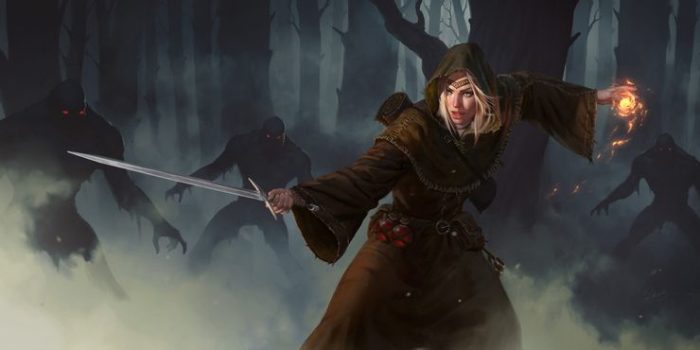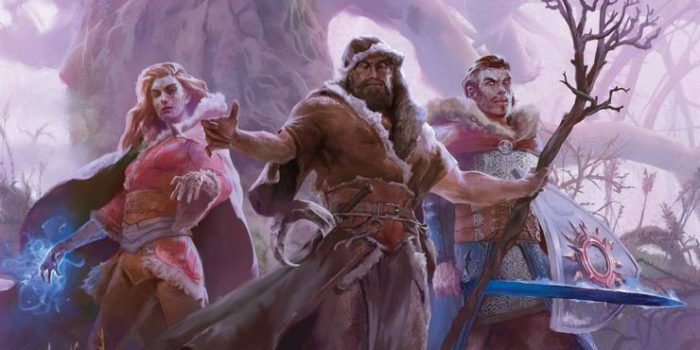Dungeons & Dragons can be as rules-heavy as the players decide, but DMs should always enforce these rules for a better roleplaying experience.
Dungeons & Dragons can be as rules-heavy or not as the group playing it desires. Players may not want to deal with certain issues, and Dungeon Masters, or DMs, might not want to impose anything too strict on players. While sometimes it’s good to let players get away with a lot, especially considering certain D&D rules players should ignore, all DMs should enforce the following rules in their games.
Dungeons & Dragons is a tabletop roleplaying game that sees a group of players collaborating to create adventures for their characters. One player acts as the DM, setting out the narrative, controlling non-player characters, and refereeing the mechanics of the game. While Dungeons & Dragons has many official settings and worlds in which to set games, the freedom that Dungeons & Dragons massive ruleset imparts on its players means that pretty much anything can go, if everyone agrees, even if it sometimes leads to darts becoming D&D’s best weapons.
When a campaign commences, there is a lot of pressure on DMs to ensure the game runs smoothly and that players are having fun. New DMs might consider these best D&D campaigns for new DMs if they’re worried. This can sometimes lead to DMs ignoring certain rules, and that’s generally fine as long as everyone, DM included, is enjoying themselves. That said, these Dungeons & Dragons rules listed below should always be enforced as they promote roleplaying, lessen player downtime, and force more interesting encounters.
D&D Rules DMs Shouldn’t Skip: Cover

Cover in Dungeons & Dragons is fairly straightforward. Creatures are either behind full cover, three-quarters cover, or half-cover. Each provides a different bonus to armor class, or total protection in the case of full. While this may seem obvious, in the heat of the moment cover is often forgotten and battlefields can be quite bare. By including cover and emphasizing cover mechanics, especially for enemies, DMs can drastically change the flow of a battle, forcing D&D players to take space into account and creating more memorable engagements.
D&D Rules DM’s Shouldn’t Skip: Inspiration

Inspiration can be handed out by DMs to players whenever they fulfill a specific requirement. This is usually tied to roleplaying, players staying true to their D&D character’s backgrounds, or particularly heroic feats. DMs should clearly explain what the criteria for earning inspiration is at the start of the campaign, and duly reward players who meet them. Doing so will encourage a better roleplaying experience for players and demonstrates that the DM is paying attention to their efforts.
D&D Rules DM’s Shouldn’t Skip: The Help Action

Players always have the ability to assist each other using the Help Action. This rule initially feels like an afterthought and is often quickly forgotten by players and DMs alike. But DMs should remind players of the utility of the help action and the ways in which it can contribute to roleplaying.
Sometimes Dungeons & Dragons characters run out of applicable abilities, in these cases using the Help Action not only grants advantage to a friend, but also allows for some cooperation and involves a player who might otherwise be left out. If not, wizards can always try and break the D&D economy with salt while they wait.
D&D Rules DM’s Shouldn’t Skip: Darkvision

With so many player races in Dungeons & Dragons possessing Darkvision, it may seem irrelevant for DMs to care much about areas of darkness. But the rules take this into account. There are three levels of light in Dungeons & Dragons – Normal light, Dim light, and Darkness. Dim light regularly gives disadvantage to players attempting perception checks in it. Darkness makes perception checks automatically fail. Darkvision only brings the light level up by one. This means that creatures with Darkvision are still rolling disadvantage in total darkness. Using this rule correctly will force players to account for lighting and add actual mystery and suspense to tense underground exploration.
There are so many rules in Dungeons & Dragons it’s easy to innocently forget some. But DMs should take care to include these rules in their sessions. The ability to nudge players towards more interesting roleplaying, better combat scenarios, and more engaging exploration is worth the extra bit of work for the DM. As long as the game remains fun for everyone at the table, then these rules add to the experience rather than detract. Now all players need to do is go out, form a Dungeons & Dragons group online, and get playing.
Article plucked from:
https://screenrant.com/dungeons-dragons-rules-dms-always-use-best-roleplaying/
Are there any other items that DM should not forget? If so please place them in the comment section.

Be the first to comment on "D&D Rules DMs Should ALWAYS Enforce"